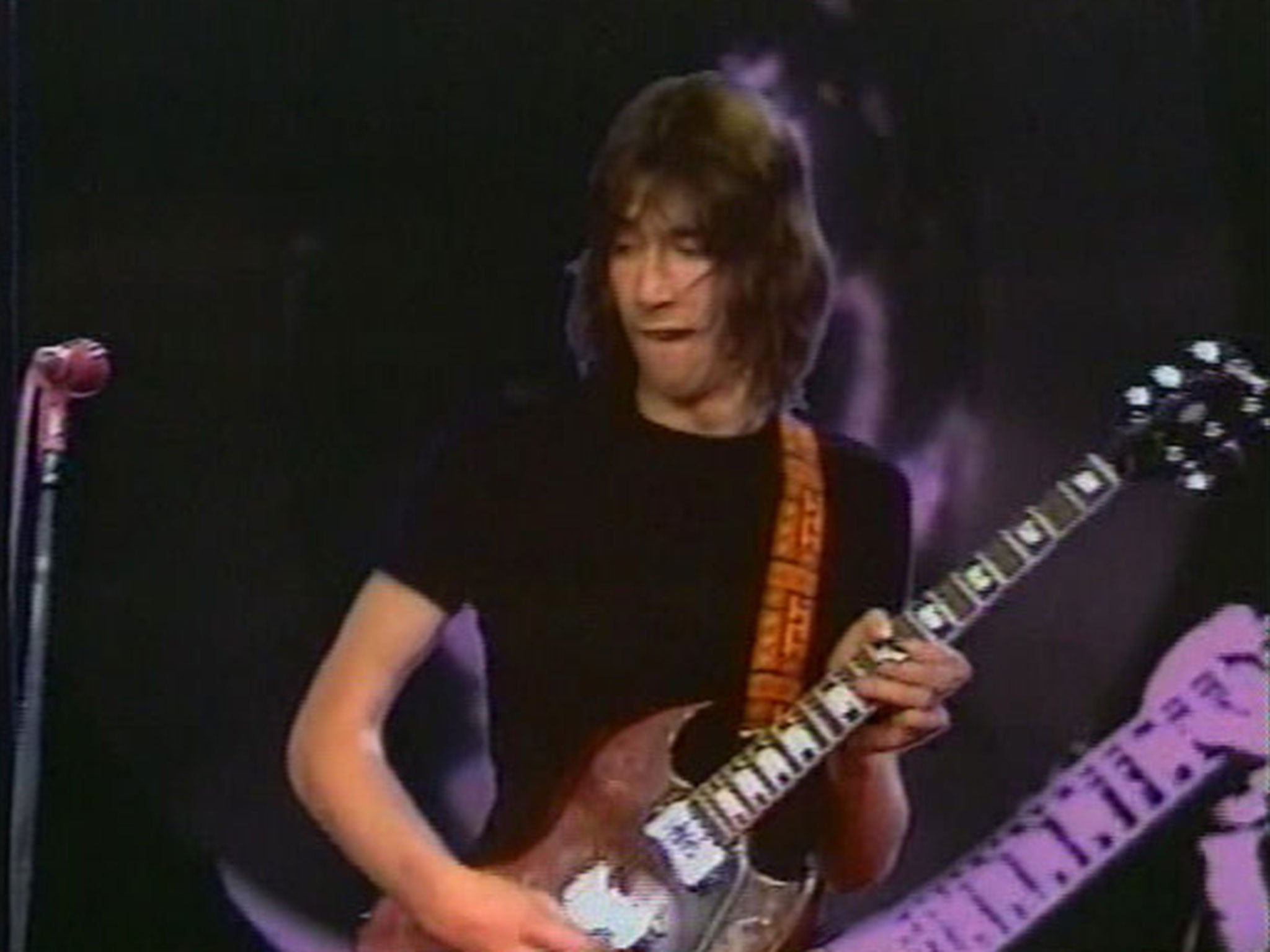Dave Ball: Lead guitarist who joined prog-rockers Procol Harum in time to feature on their seminal 1972 live album
Ball answered an ad in the British music weekly Melody Maker

Your support helps us to tell the story
From reproductive rights to climate change to Big Tech, The Independent is on the ground when the story is developing. Whether it's investigating the financials of Elon Musk's pro-Trump PAC or producing our latest documentary, 'The A Word', which shines a light on the American women fighting for reproductive rights, we know how important it is to parse out the facts from the messaging.
At such a critical moment in US history, we need reporters on the ground. Your donation allows us to keep sending journalists to speak to both sides of the story.
The Independent is trusted by Americans across the entire political spectrum. And unlike many other quality news outlets, we choose not to lock Americans out of our reporting and analysis with paywalls. We believe quality journalism should be available to everyone, paid for by those who can afford it.
Your support makes all the difference.In the summer of 1971, Dave Ball was one of 80 musicians who answered an ad in the British music weekly Melody Maker to replace the Procol Harum lead guitarist, Robin Trower. "When I got there, they were very tired. It was quite obvious they'd seen too many guitar players. We played some R&B, some blues-type rock'n'roll, and then we went through a couple of their songs," Ball later said about his successful audition. "They said that I was the only guitarist who had 'just played' as opposed to 'played along'."
Ball joined the vocalist-pianist Gary Brooker, the lyricist Keith Reid – a non-performing mainstay since the group's inception in 1967 – the drummer BJ Wilson and the organist Chris Copping at the same time as the bassist Alan Cartwright was added to the line-up. In November 1971, they recorded the landmark album Procol Harum Live: In Concert with the Edmonton Symphony Orchestra in Alberta, Canada.
Issued the following year, the ambitious concert recording successfully merged progressive rock and classical music and became the band's best-selling album. As well as an inspired rendition of "A Salty Dog" and the suite "In Held 'Twas in I" – featuring some sterling work by Ball – it contained a superlative version of "Conquistador", which charted internationally and reinvigorated the career of the group forever synonymous with the epochal Summer of Love single "A Whiter Shade of Pale".
Ball enjoyed himself on tour with Procol, particularly in the US, but quit in September 1972 as they neared completion on their next studio album, Grand Hotel. "I left Procol because I was bored with it," he told Melody Maker at the time. "There were only so many ideas I could put into that style."
Mick Grabham came in his stead and overdubbed guitar solos over the material already recorded by Ball, who didn't insist on any credit on the release of Grand Hotel. "I was still young," he admitted recently. "I managed to get credited on the last reissue. But I can state categorically that I am playing guitar and spoons on 'A Souvenir of London', and that it is my body on the cover photographs, with Mick Grabham's head pasted on top – which elevated him at least a foot higher than he was before!" said the 6ft 4in Ball.
Born in 1950, he was the last of three sons from a musical Birmingham family. "We were born show-offs and broke into a routine at the slightest excuse," he said of his adolescence strumming a guitar alongside Pete and Denny. All three brothers played in various groups in Germany before teaming up with the drummer Cozy Powell to back Ace Kefford, formerly of The Move, and then forming Big Bertha in 1969.
In 1973, the Ball brothers reunited with Powell and added the vocalist Frank Aiello to become the hotly tipped, hard-rocking Bedlam, whose debut album was produced by Felix Pappalardi of Cream and Mountain fame. However, Powell's solo success with the single "Dance with the Devil" derailed their career.
Ball enrolled in the Army for five years and ended up stationed on St Kilda. He later took up computer programming.
In 2012, he released a solo album, Don't Forget Your Alligator, the year he was diagnosed with bowel cancer. He chronicled his battle with the disease in the second part of his autobiography, Half Hippie Half Man (available as an ebook from Amazon).
PIERRE PERRONE
David Ball, guitarist and songwriter: born Birmingham 30 March 1950; two sons, one daughter; died Burton-upon-Trent 1 April 2015.
Join our commenting forum
Join thought-provoking conversations, follow other Independent readers and see their replies
Comments